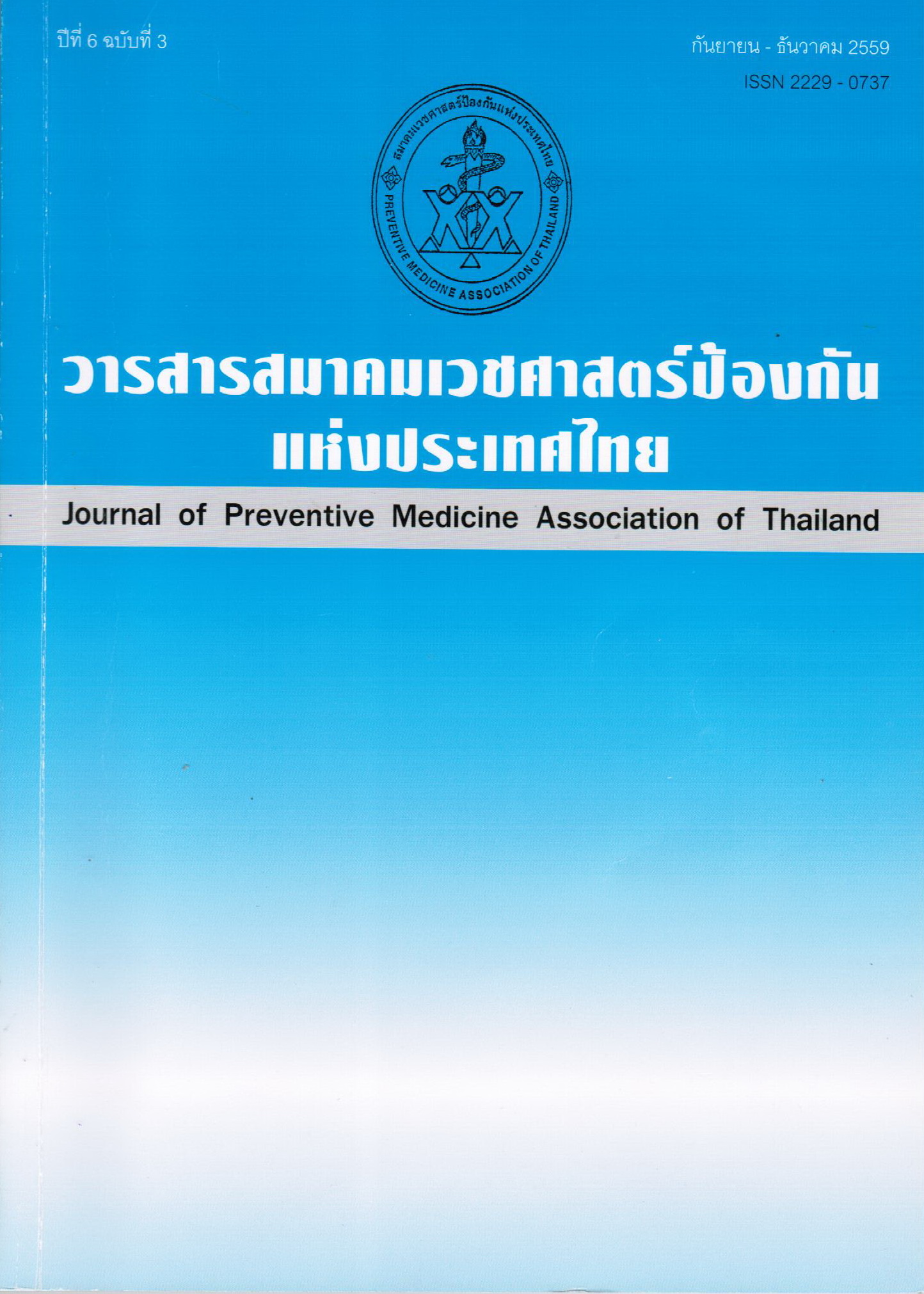Importance of Play on Child Development
Keywords:
play, child developmentAbstract
Play is natural to children and important for the development process from early childhood to adulthood in all aspects including physical, intellectual, social, emotional, and creative aspects. Understanding the development of play in relation to other aspects of development will make us appreciate that play is more valuable than entertainment, which cannot be substituted with academic trainings. Adults have a duty to support children’s rights to play and leisure appropriately.
References
2. วิจารณ์ พานิช. การสร้างการเรียนรู้สู่ศตวรรษที่ 21 [อินเตอร์เน็ต]. กรุงเทพฯ: มูลนิธิสยามกัมมาจล; 2556 [วันที่ค้นข้อมูล 1 ก.ย. 2559].
แหล่งข้อมูล:https://www.scbfoundation.com/publishing.php?project_id=292#publishing/292/5466/
3. Office of the United Nations High commissioner for human Rights. Convention on the Rights of the Child. General Assembly resolution 44/25 of 20 November 1989 Article 31 [internet].[cited 2016 Aug 1]. Available from: URL: https://www.ohchr.org/en/professionalinterest/pages/crc.aspx/
4. Parmar P, Harkness S, Super CM. Asian and Euro-American parents’ ethnotheories of play and learning : effects on preschool children’s home routines and school behavior. Int J Behav Dev 2004;28:97-104.
5. Lin YC, Yawkey TD. Does play matter to parents? Taiwanese parents’ perceptions of child’s play. Education 2013;134:244-54.
6. จิตตินันท์ เดชะคุปต์, ปัทมาวดี เล่ห์มงคล. โครงการวิจัยการเล่นของเด็กในครอบครัวไทย : ลักษณะและปัจจัยที่มีอิทธิพลต่อพัฒนาการเด็กในช่วงปฐมวัย [อินเตอร์เน็ต]. กรุงเทพฯ: ฐานข้อมูลผลงานวิจัย มหาวิทยาลัยสุโขทัยธรรมาธิราช; 2558 [วันที่ค้นข้อมูล 25 ก.ย. 2559]. แหล่งข้อมูล: https://ird.stou.ac.th/dbresearch/fDetail.php?fID=149/2558/
7. วนิดา ชนินทยุทธวงศ์, บรรณาธิการ. สถาบันราชานุกูล กรมสุขภาพจิต กระทรวงสาธารณสุข. กิน กอด เล่น เล่า (2ก2ล) กับลูกอายุ 0-5 ปี. กรุงเทพฯ : โรงพิมพ์ชุมนุมสหกรณ์การเกษตรแห่งประเทศไทย จำากัด, 2554.
8. ประเสริฐ บุญเกิด และคณะบรรณาธิการ. สถาบันส่งเสริมอัจฉริยภาพและนวัตกรรมการเรียนรู้ สำนักงานบริหารและพัฒนาองค์ความรู้. เล่นตามรอยพระยุคลบาท. พิมพ์ครั้งที่ 2. กรุงเทพฯ: บริษัท พลัสเพรส จำกัด; 2556.
9. Ginsburg KR. Importance of play in promoting healthy child development and maintaining strong parent-child bonds. Pediatrics 2007;119:182-91.
10. Levine LE, Munsch J. Child development from infancy to adolescence-an active learning approach. Canada:SAGE Publications, Inc; 2016.
11. Weisberg DS. Pretend play. Cogn Sci 2015;6:249-61.
12. Lee H, Tamminen KA, Clark AM, Slater L, Spence JC, Holt N. A meta-study of qualitative research examining determinants of children’s independent active free play. Int J Behav Nutr Phys Act 2015;12:1-12.
13. Goldstein J. Play and technology. In: Play in children’s development, health and well-being. [internet]. 2012 [cited 2016 Sep 1]. Available from: http://www.ornes.nl/wp-content/uploads/2010/08/Play-in-children-s-development-health-and-well-being-feb-2012.pdf/
Downloads
Published
How to Cite
Issue
Section
License
บทความที่ลงพิมพ์ในวารสารเวชศาสตร์ป้องกันแห่งประเทศไทย ถือเป็นผลงานวิชาการ งานวิจัย วิเคราะห์ วิจารณ์ เป็นความเห็นส่วนตัวของผู้นิพนธ์ กองบรรณาธิการไม่จำเป็นต้องเห็นด้วยเสมอไปและผู้นิพนธ์จะต้องรับผิดชอบต่อบทความของตนเอง






